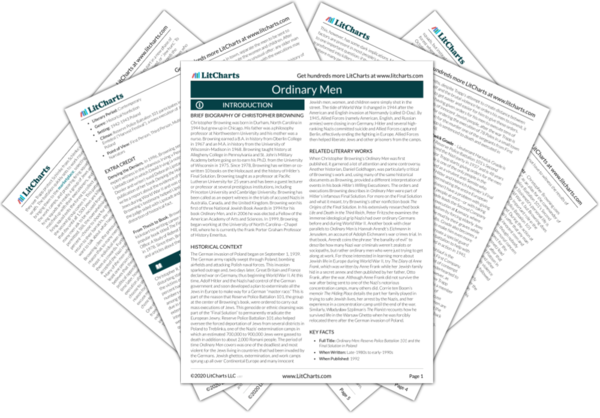Details about Hoffmann’s duties in Russia aren’t provided, but presumably something about this new assignment isn’t as stressful to him as his duties in Poland. The Iron Cross Second Class is typically only given to people who display great courage in the face of danger or who provide services that go above and beyond their duty. Hoffmann doesn’t just succeed once he is taken out of Poland and the particularly distasteful duties he was asked to perform there—he thrives. Hoffmann’s story and mysterious illness show that even the men who aren’t personally involved in shootings (Hoffmann typically helped form firing squads, but it isn’t clear if he regularly took part in them himself) suffer a huge amount of psychological distress just from seeing them. This presumably includes those who consistently choose not to shoot; they might not be shooting, but they hear and see it happening and likely do suffer a lot of trauma and distress as a result.
